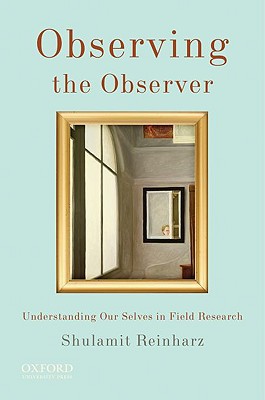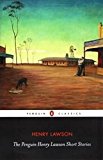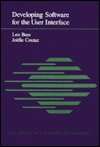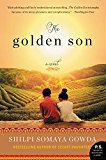Observing the Observer: Understanding Our Selves in Field Research
Reinharz, Shulamit
Obserring The Obserrer Makes An Important Contribution To The Literature On Social Seience Methodology By Foeusing On The Process Of Conducting Field Research And How This Process Shapes Our Findings (and Ourselves). The Book Fills An Important Gap In This Literature By Not Only Highlighting Various Nuts-and-bolls Aspects Of Carrying Out Field Research But Also By Bringing In A Personal Perspective To The Process.--melanie Cammell, Harvard University Several Sections Are Quile Unique To The Literature On Qualitative Research (e.g., The Sections On Motherhood And Fieldwork And On Absent Selves) And Will Make A Significant And Very Useful Contribution.^ The Book Raises Issues That Are Not Addressed In Any Other Methodological Text I Have Seen.---cynthia Miller-idriss, New York University Observing The Observer Is The Best Discussion Of The Self In Fieldwork That I Have Read, Without A Doubt.---linda Grant, University Of Georgia Ethnography Or Participant Observation Research Has Been Performed Since The Early Nineteenth Century And Is Now One Of The Most Common Ways For Field Researchers To Gain An In-depth Understanding Of Social Life. In Observing The Observer: Understanding Our Selves In Field Research---the Only Book That Covers The Issue Of Reflexivity, In Field Research---author Shulamit Reinharz Provides A Captivating Analysis Of Her Yearlong Stay In Israel, Where She Engaged In A Study Of Aging On A Kibbutz. Exploring The Issue Of Reflexivity, This Unique Volume Focuses On The Key Tool In Fieldwork---the Self.^ It Discusses How The Many Facets Of The Self (or Selves) Of A Researcher---research Selves, Personal Selves, And Situational Selves---can Affect How Research Is Enacted And Reported On. The Book Addresses Many Of The Current Debates On Fieldwork, Especially Those That Have Arisen In The Feminist Literature. Ideal For Graduate Courses In Qualitative Research Methods, Ethnographic Methods, Or Ethnography, Observing The Observer Can Also Be Used In Upper-level Undergraduate Courses On Qualitative Methods.--jacket. Developing Research Selves : The Desire, Opportunity, And Preparation To Do A Study -- Becoming Independent Of The Sponsor -- Gaining Allies, Overcoming Antagonists, Being Tested -- Personal Selves -- Understanding The Elderly As A Consequence Of My Mothering Role -- Being A Woman, A Wife, 33 Years Old, A Jew And A Potential Member -- Being An American, An Academic, A Sociologist/anthropologist/gerontologist, Dancer And Daughter -- Situational Selves : Being A Worker, Being Temporary -- Being A Volunteer (neither A Volunteer Nor A Hired Worker) And Being Sick -- Being A Neighbor, A Friend, A Homemaker, A Hostess And A Leaver -- Theoretical Conclusions. Shulamit Reinharz. Includes Bibliographical References And Index.
| Name in long format: | Observing the Observer: Understanding Our Selves in Field Research |
|---|---|
| ISBN-10: | 0195397800 |
| ISBN-13: | 9780195397802 |
| Book pages: | 240 |
| Book language: | en |
| Edition: | Illustrated |
| Binding: | Paperback |
| Publisher: | Oxford University Press |
| Dimensions: | Height: 6.1 Inches, Length: 9.1 Inches, Weight: 0.75398093604 Pounds, Width: 0.4 Inches |









